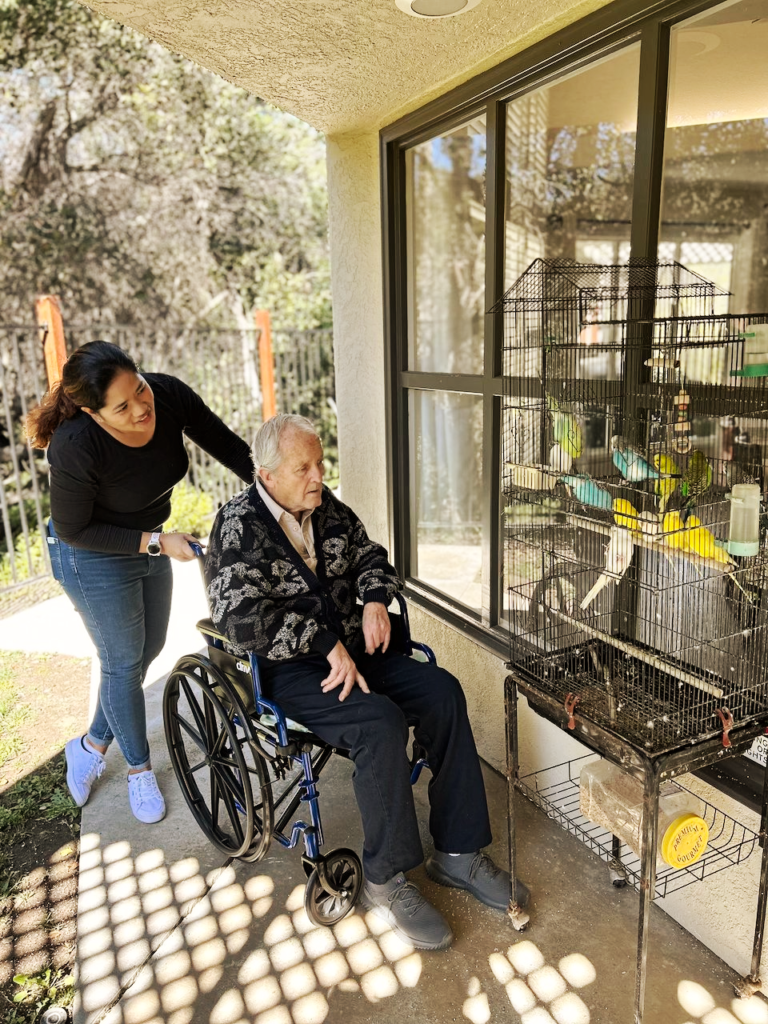Assisted senior living communities are designed to provide Empowering Seniors with the care and support they need in their later years. While these facilities ensure a comfortable and safe environment for seniors, they also play a crucial role in fostering a sense of purpose and fulfillment among residents. One of the most impactful ways to achieve this is by promoting the culture of giving back.

In this essay, we delve into the significance of giving back in assisted senior living communities, exploring how it positively impacts seniors’ lives, enhances the community as a whole, and showcases the invaluable contributions seniors can make to society.
I. Empowering Seniors Through Giving
In assisted senior living communities, residents often experience a range of emotions as they adapt to their new living situation. Some may struggle with feelings of loss and isolation due to significant life changes, such as moving away from long-time homes or losing loved ones. Engaging seniors in opportunities to give back provides a transformative outlet for their emotions, empowering them with renewed purpose and self-worth.
Participating in charitable activities and community service enables seniors to tap into their inherent desire to make a difference. Through giving, they rekindle their passions and rediscover their unique talents, helping to combat any feelings of insignificance that may have arisen during the aging process. Moreover, the act of giving back allows seniors to remain mentally and emotionally active, reducing the risk of cognitive decline and depression often associated with aging.
II. Improving Mental and Emotional Well-being
The act of giving back has been scientifically linked to improved mental and emotional well-being. When seniors engage in acts of kindness and altruism, their brains release neurotransmitters like dopamine and oxytocin, leading to feelings of happiness, pleasure, and a sense of connection. In assisted senior living communities, promoting volunteering and community engagement can significantly contribute to residents’ happiness and overall life satisfaction.
Through volunteering, seniors find new meaning in their lives, which can be especially vital when coping with significant life changes or losses. Additionally, participating in group activities and volunteer programs fosters a sense of camaraderie and friendship among residents, creating a supportive social network that can greatly reduce feelings of loneliness and isolation.
III. Fostering Intergenerational Bonds
Assisted senior living communities often facilitate intergenerational programs, bringing seniors together with younger members of the community. These interactions benefit both seniors and younger individuals in profound ways. Seniors have the opportunity to share their life experiences and wisdom, offering valuable insights and guidance to younger generations.
In return, younger individuals can bring fresh perspectives and energy to seniors’ lives, rejuvenating their spirits and broadening their horizons. These intergenerational exchanges build a mutual understanding and appreciation, bridging the generation gap and reinforcing the belief that seniors still have much to contribute.
IV. Contributing to the Wider Community
Assisted senior living communities can act as vital hubs for community involvement. By encouraging seniors to give back, these facilities help residents channel their talents and skills toward meaningful causes, making them valuable resources for local charities and nonprofit organizations.
Seniors can contribute to the wider community in various ways, such as volunteering at food banks, participating in fundraisers, or engaging in community development projects. The collective impact of these efforts not only benefits specific causes but also raises awareness about the capabilities and potential of seniors to positively influence society.
V. Promoting Positive Aging Stereotypes
The promotion of giving back in assisted senior living challenges negative stereotypes associated with aging. Seniors actively participating in community service and volunteer work demonstrate that age does not diminish one’s value or ability to make a difference. By breaking down these stereotypes, seniors reshape the perception of aging, paving the way for a more inclusive and age-friendly society.
Furthermore, seniors’ involvement in community activities encourages others to follow suit, inspiring younger generations to appreciate and respect the elderly. This positive representation of seniors reinforces the notion that aging is a natural part of life, and one that can be embraced with grace, dignity, and continued engagement with the community.
VI. Various Opportunities for Seniors to Give Back
Assisted senior living communities offer a wide range of opportunities for residents to give back based on their interests, abilities, and mobility. Some common avenues for seniors to get involved include:
- Engaging in arts and crafts activities to create items for charitable causes or local fundraisers.
- Volunteering at nearby schools or libraries to assist with reading programs or tutoring.
- Joining environmental initiatives like community gardening or clean-up projects.
- Participating in intergenerational programs that involve mentoring or sharing life experiences with younger individuals.
- Supporting local shelters or food banks through volunteer work or donations.
- Using their expertise to teach classes or workshops for other residents in the assisted living community.
Conclusion
In conclusion, the importance of giving back in assisted senior living communities cannot be overstated. Encouraging seniors to engage in charitable activities and community service not only empowers them with a sense of purpose and fulfillment but also enhances their mental and emotional well-being. By fostering intergenerational bonds and promoting positive aging stereotypes, seniors demonstrate the invaluable contributions they can make to society.
Assisted senior living communities serve as catalysts for promoting giving back, providing various opportunities for seniors to get involved and make a meaningful impact on their community and beyond. Through their acts of kindness and altruism, seniors prove that age does not limit one’s ability to create positive change, inspiring generations to come and fostering a more compassionate and inclusive society.

